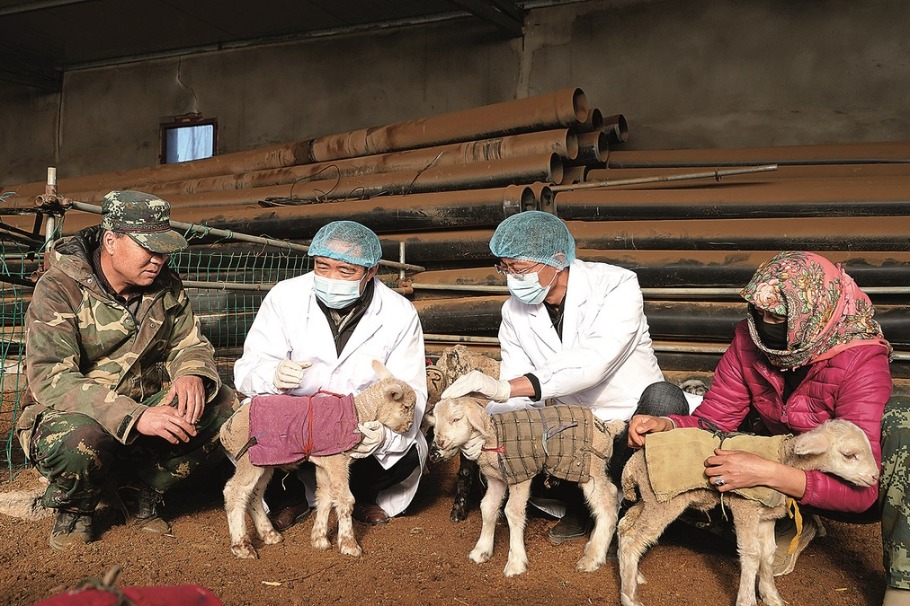Fresh approaches to winter pasturing see strong returns
Use of high-tech methods reduce environmental impact, boost incomes






Fatter, healthier
Since 2000, the number of livestock grazing on natural grasslands in Sunan has decreased by 93,000 sheep every year on average.
This has resulted in 1.07 million mu of natural grassland in the Qilian Mountains having a "vacation" for nearly five months from the impact of grazing herds, according to the animal husbandry and veterinary service center of Sunan county's agriculture and rural affairs bureau.
In 2022, the grass yield per mu on the county's natural grassland increased by 20.6 percent compared with 2010, and the total coverage of pasture grass reached 78.2 percent, according to the latest data from the center.
There has also been significant growth in the utilization rate of crop residues in farming areas.
"Stalks have rich nutrients to fatten the livestock, increase wool production and increase the survival rate of lambs during winter," said An Yufeng, director of the center.
"Although each sheep may incur an additional cost of 98 yuan when compared to transferring them to a winter pasture, the overall net income can still be raised by 28 yuan," he said, adding that a herder can on average earn an extra 12,000 yuan in annual income.
The shortage of grass and lack of infrastructure at some winter pastures to keep the animals warm, as well as the risks of livestock deaths are additional costs herders can face if they shift their livestock, An said.
Last year, local farmers in the county received 68 million yuan in income by renting land to herdsmen.
"It also reduced the problem of air pollution caused by farmers burning crop residues, as well as the use of chemical fertilizers on farmland, thereby lowering agricultural costs," An said.
Since 2014, the local government has been recording livestock information and examining the animals' health to prevent epidemics. This year, each herder's family received a 1,000-yuan government subsidy, as well as gloves, washing powder, and disinfectants.



















